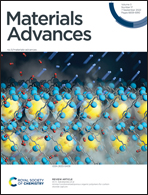
Injectable bone substitutes (IBS) represent compelling options for bone regenerative medicine as they can be used to optimally fill a complex bone defect through minimally invasive intervention. Since their discovery, calcium phosphate (CaP) based IBS have never stopped evolving to match the diverse clinical needs. The main challenge is to combine the desired physico-chemical and handling properties of the IBS to an optimal induced biological response. This cannot unfortunately be achieved with CaP biomaterials alone, hence a growing use of polymers and organic macromolecules as additives. To properly understand the ins and outs, a didactic classification of IBS is proposed in this review, which compiles the past, present and future developments of IBS. Class I IBS, taking advantage of ceramic particles or granules as the support for bone formation, are already commercialized and widely employed in clinics. In contrast, Class II IBS, where cements serve as a stiff matrix for the development of mineralized tissues, associated with polymers, are still in their early stages but have shown significant improvements versus Class I products. These innovative Class II IBS will be the second focal point of this review.